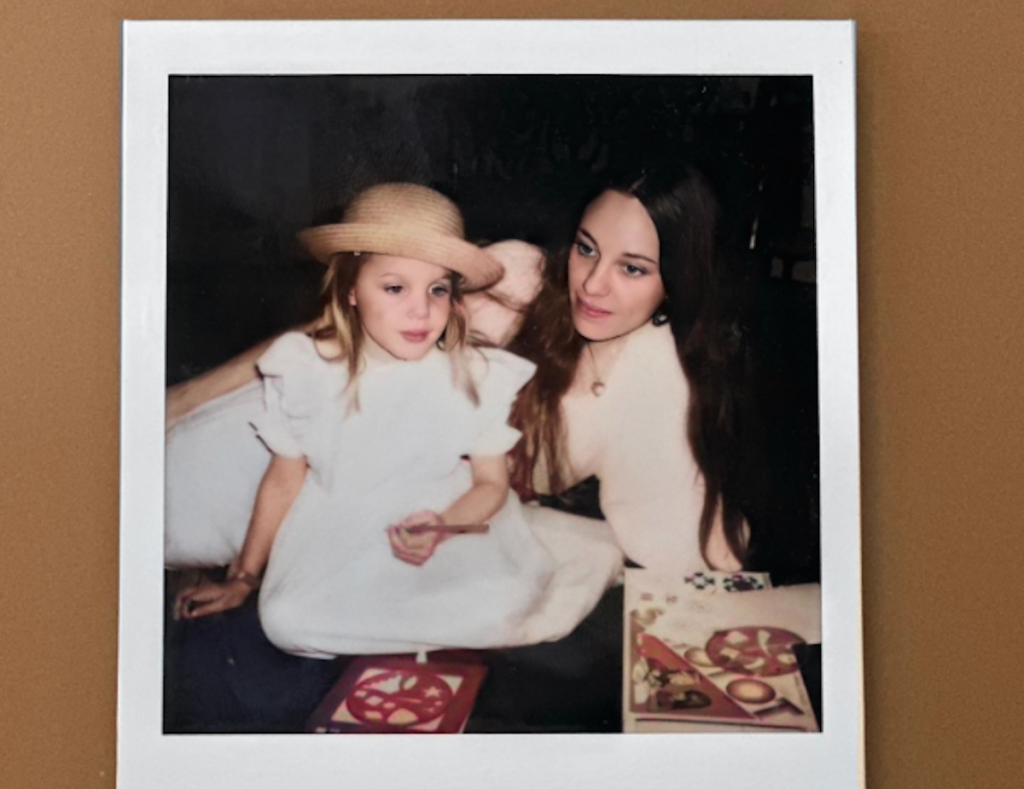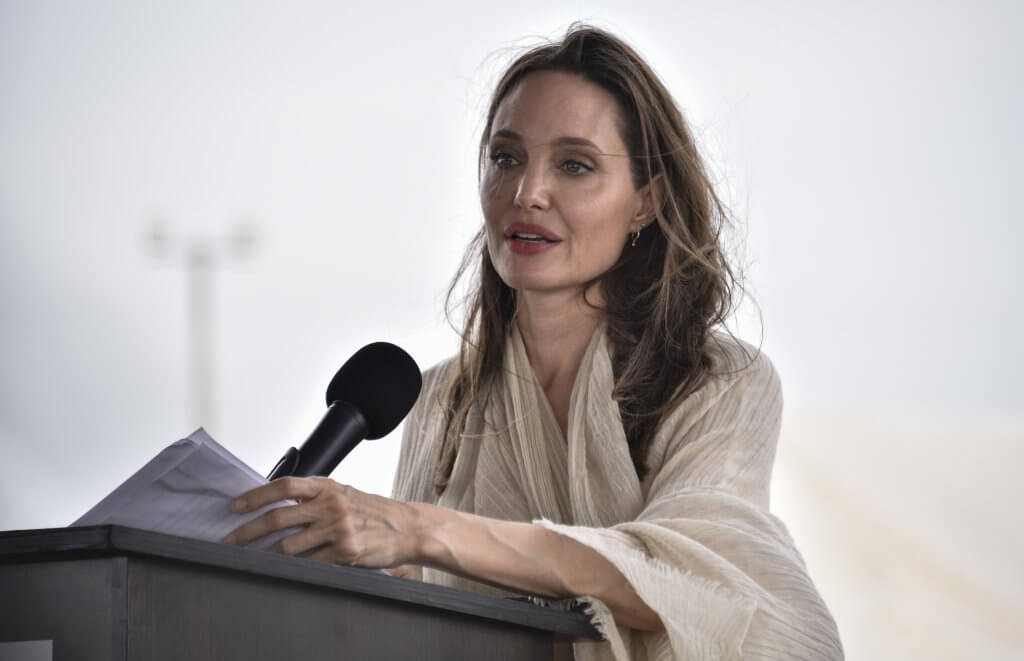Advice On Talking To Loved Ones With Cancer
- Angelina Jolie, who lost her mother to breast and ovarian cancer in 2007, has offered some heartfelt advice on how to support loved ones battling cancer during a recent Q&A at the Toronto International Film Festival.
- Jolie, who is starring in the new film “Couture” highlighted the significance of looking beyond the illness, sharing a message of hope and resilience for those going through similar challenges.
- Jolie underwent a prophylactic or preventative mastectomy in 2013. In 2015, Jolie underwent a bilateral salpingo-oophorectomy, which removed her ovaries and fallopian tubes to reduce her cancer risk since she carries the BRCA gene mutation.
- When talking to a loved one battling cancer, there are certain things it’s best to avoid saying. Everyone’s experience is unique, so what may upset one survivor might not affect another—but overall, it’s crucial to choose your words thoughtfully when someone is facing such a life-altering journey.
- If you accidentally say something awkward, a sincere and brief apology can make a big difference—there’s no need to over-explain or dwell on it. More importantly, being a good listener and showing that you’re there to support them means the world.
During a Q&A session at the premiere of her upcoming film “Couture,” Jolie shared that her mother preferred not to be asked about her cancer battle—a reflection she offered in hopes of inspiring hope and strength in others, showing that there is life to be lived despite a diagnosis.
Read More“They’re a whole person and they’re still living.”
@__angelinaswife__ our baby needs to be protected i can’t handle this ☹️💔#angelinajolie #angelinajolieedit #cancer #sad #emotional
Jolie’s heartfelt response followed someone looking for guidance “to anyone who recently lost someone” to a disease.
She didn’t hold back her emotions as she said “I’m very sorry for your loss” alongside the film’s director Alice Winecour and her fellow “Couture” actress Anyier Anei.
Jolie’s advice, which is seen in a video shared on TikTok, prompted praise from fans, with one commenting, “Because they’re so much more than just that one thing!”
Another fan wrote, “She is so wonderful and has been through so much.”
Expert Resources On Coping With Emotions After Loss
- How to Help Your Loved Ones Dealing With Loneliness, Anxiety, & Cancer
- Mental Health: Coping With Feelings of Anger
- New Hard Evidence That Exercise Measurably Reduces Anxiety– 150 Minutes Per Week Makes The Difference
- Responding to Stress: How to Cope With Complex & Changing Emotions
- Mental Health and Cancer — The Fight, Flight or Freeze Response
- SN & You Presents Mental Health: Coping With Emotions
While a third said, “My mom has cancer and I try to do the same.”
Jolie’s role in “Couture” certainly resonates on a deeply personal level for the actress as the role she’s taken on is similar to her own experience with her late mom.
Her sweet words on how to speak to cancer thrivers remind is that facing a cancer diagnosis is challenging enough—so it’s best to try not to make it harder. That’s also the advice of writer and breast cancer survivor Catherine Gigante-Brown. Catherine’s simple advice is “don’t say stupid things.” That includes anything about someone you know who died of cancer.
How to Talk to a Friend With Cancer: Don’t Say Stupid Stuff
A good place to start with a friend or family member who has recently been diagnosed is to simply ask them what you can do to help. Being available to help out in whatever way, can make a big difference.
Losing Her Mom To Cancer
Angelina Jolie’s mother, Marcheline Bertrand, passed away in 2007 after a long fight with breast and ovarian cancer. Jolie openly shared her experience of loss in an Op-Ed for The New York Times.
“I lost my mother in my thirties. When I look back to that time, I can see how much her death changed me. It was not sudden, but so much shifted inside. Losing a mother’s love and warm, soft embrace is like having someone rip away a protective blanket,” she wrote of her loss.

Marcheline Bertrand, like her daughter Angelina Jolie, was an actress. Originally from Illinois, she moved to Los Angeles to study under the renowned acting coach Lee Strasberg. She met Jon Voight, Jolie’s father, in 1971, but the couple eventually divorced.
To reduce her risk of developing cancer, Jolie opted for several preventive medical procedures.
In 2013, she underwent a double mastectomy, followed by additional surgeries that included the removal of breast tissue, the use of temporary implants, and breast reconstruction.
In 2015, she opened up about the procedures she had to remove her ovaries and fallopian tubes, reducing her risk of developing ovarian cancer – promoting the “Angelina Jolie Effect,” a term Harvard researchers used to refer to the “large spike in genetic tests for a gene known to increase breast cancer risk following Jolie’s op-ed.”
Coping After The Loss of a Loved One
It’s important to remember that grief may look different for everyone—and the stages of grief are denial, anger, bargaining, depression, and acceptance. These labels help us frame and identify what we may be feeling. These stages can also occur in any order.
The time it takes to navigate these stages can also vary, so giving yourself grace and patience is essential while navigating your feelings.
WATCH: Dealing With Grief Related to Health Problems
“It often gets better over time, but on certain days, it can look like depression, and on other days, people look perfectly normal and can function,” Dr. Scott Irwin, a board-certified psychiatrist and Director of Supportive Care Services at Cedars-Sinai Medical Center, previously told SurvivorNet.
Dr. Irwin added that grieving people are coming to terms with “the change in their life; the future they had imagined is now different.”
In a column for SurvivorNet, New York-based clinical psychologist Dr. Marianna Strongin wrote that it may be helpful to remind yourself that these feelings are “meaningful yet temporary.”
“If you approach them with compassion, kindness, and eventually acceptance, you will come away from this period in your life more connected to your resilience and strength,” she wrote.
The Jolie Effect
Angelina Jolie helped popularize BRCA genetic testing in 2013 after she penned an op-ed in The New York Times revealing she had the BRCA1 gene mutation. In her memorable piece, she noted the gene mutation increased her risk of breast cancer by an estimated 87% and her risk of ovarian cancer by 50%.
“Once I knew that this was my reality, I decided to be proactive and to minimize the risk as much (as) I could,” Jolie writes. “I made a decision to have a preventive double mastectomy (removal of both breasts). I started with the breasts, as my risk of breast cancer is higher than my risk of ovarian cancer, and the surgery is more complex.”

“But I am writing about it now because I hope that other women can benefit from my experience. Cancer is still a word that strikes fear into people’s hearts, producing a deep sense of powerlessness. But today, it is possible to find out through a blood test whether you are highly susceptible to breast and ovarian cancer, and then take action.”
Jolie, who is a mother of six, had her ovaries and breast removed after her mom, Marcheline Bertrand, passed away after battling breast and ovarian cancers.
Colloquially called the “Angelina Jolie Effect” or “Jolie gene” test, the impact of the actress’ op-ed prompted a notable spike in BRCA gene testing. The new test was created to determine the women who are at the most significant risk of developing breast cancer and ovarian cancer because of a specific gene mutation, the BRCA gene mutation.
According to a 2016 Harvard Medical School report, “Researchers estimated that in the span of two weeks, the op-ed may have precipitated 4,500 more BRCA tests than would have normally occurred during that time period nationally at a price tag of $13.5 million.”
How to Cope With Complex & Changing Emotions
When a stressful life event occurs, people may react with a range of different (and quickly changing) emotions. This is completely normal.
“The way people respond is very variable,” Psychiatrist Dr. Lori Plutchik tells SurvivorNet. “Very much consistent with how they respond to stresses and challenges in their life in general.”
In this video, Dr. Plutchik is speaking mostly about how people react after a cancer diagnosis which can be a huge range of emotions from fear to anger to determination.
However, the conclusion remains the same no matter what stressor someone may be dealing with: your emotions are valid and seeking mental health help may look different for every person.
“People have a range of emotions when they’re diagnosed with cancer,” Dr. Plutchik explains. “And they can include fear, anger … and these emotions tend to be fluid. They can recede and return based on where someone is in the process. Going through a cancer diagnosis is just the beginning of a complicated, complicated process.”
Handling stressful life events
Dr. Plutchik explains that the patient, or person going through the stressful event, should accept that emotions will be fluid. You may feel fine one day and then feel a massive wave of stress the next. It’s also important for those you look to for support whether that’s a therapist, friends and family, or both to understand the fluidity of stress-related emotions.
If a stressful event is affecting how you think and feel, it may be time to seek some sort of mental health treatment. This could mean traditional talk therapy, medication, changing lifestyle habits (like exercise and diet), seeking out a support group, or many other approaches.
Questions to Ask Your Doctor
- What can I do if my emotions begin to feel overwhelming?
- Are there approaches that don’t involve traditional therapy?
- Should I consider medication such as antidepressants?
- What are the potential side effects should I decide to begin medication?
Contributing: SurvivorNet Staff
Learn more about SurvivorNet's rigorous medical review process.

